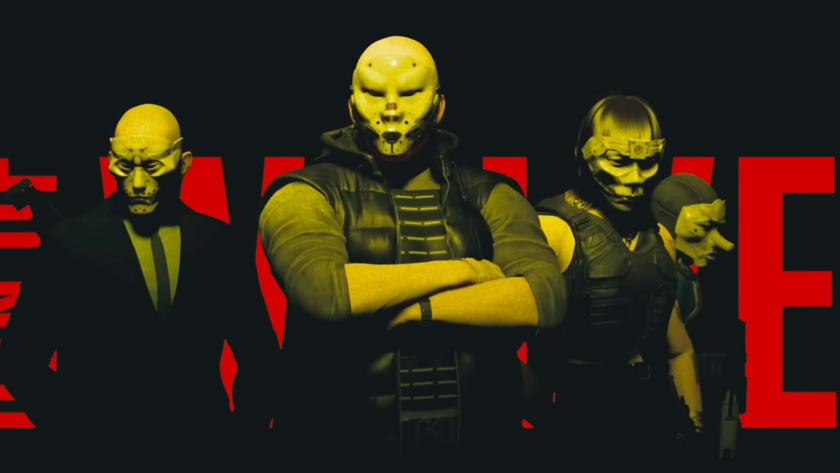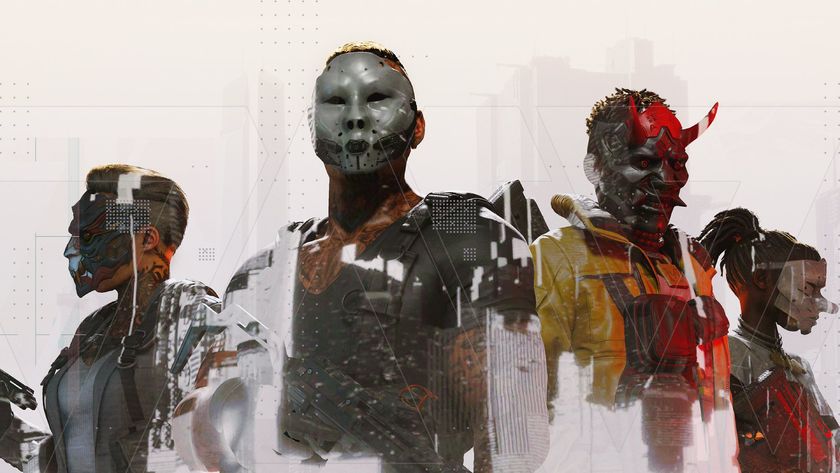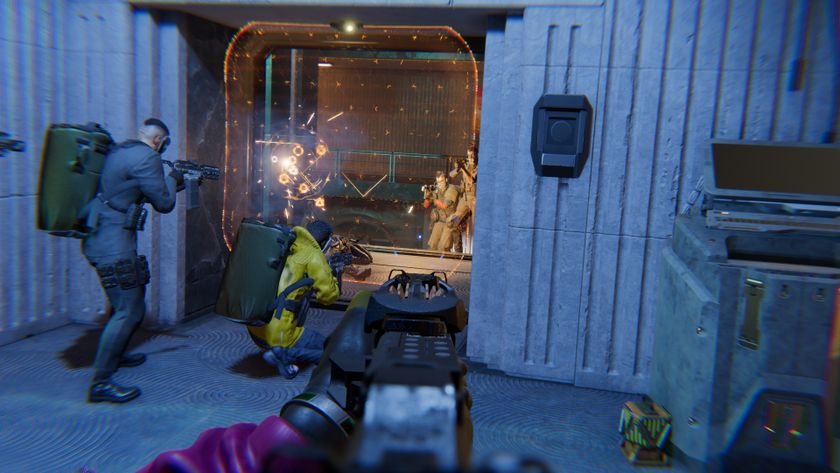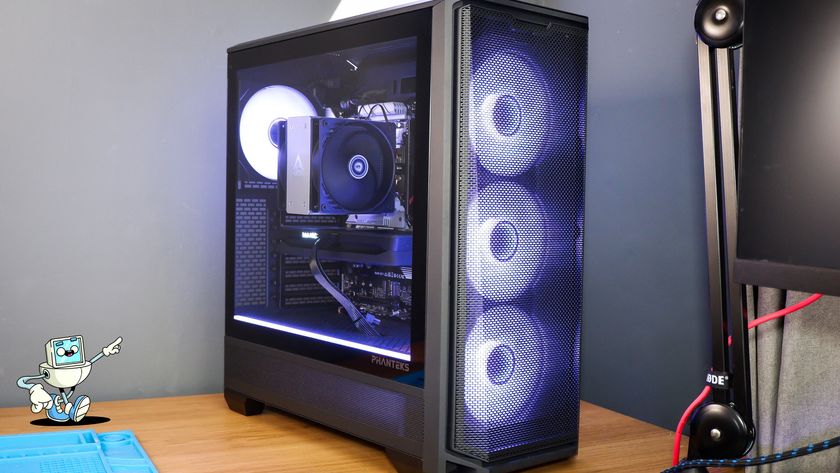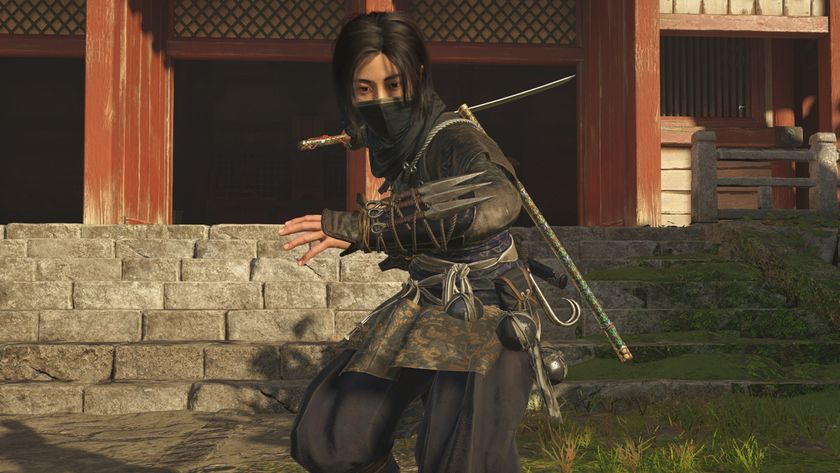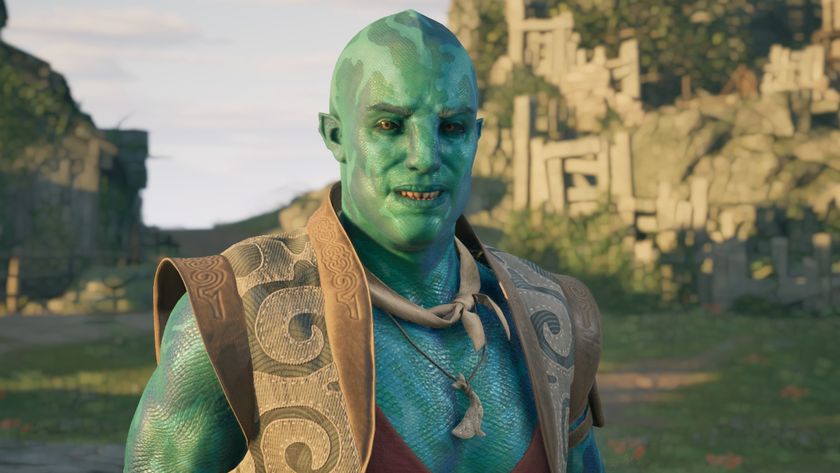CS:GO’s controversial skin gambling, explained
How does skin gambling work, and is it illegal? We investigate.
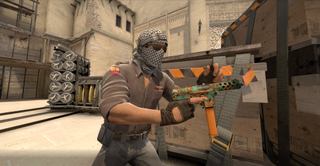
CS:GO’s popularity over the last several years has birthed an industry of independent ‘skin gambling’ operations. Tens of thousands of people bet in-game items from CS:GO on these third-party websites, and their won and lost digital goods have real-world value within the Steam Community Market.
Moral and legal murkiness surrounds these enterprises, many of which are based outside the US, and many of which are not licensed, regulated gambling entities. Though US law has begun to weigh in on fantasy sports gambling apps like DraftKings, it has yet to address this less-visible extension of video game culture. A class-action claim against Valve is one of the first signs that this issue will draw broader legal attention.
In the meantime, segments of CS:GO’s esports scene hold questionable relationships with these services. Teams profit directly from the in-game sales of team and player virtual stickers, which are valid betting items. The availability of betting has unquestionably grown interest in CS:GO esports, and teams and leagues have received sponsorship from gambling websites. In January 2015 Valve banned seven players after it became clear that members of Team iBUYPOWER had fixed a match, betting on their opponent and intentionally losing in order to win tens of thousands of dollars worth of CS:GO skins. “Professional players, their managers, and teams’ organization staff,” Valve wrote in response to the incident, “should under no circumstances gamble on CS:GO matches, associate with high volume CS:GO gamblers, or deliver information to others that might influence their CS:GO bets.”
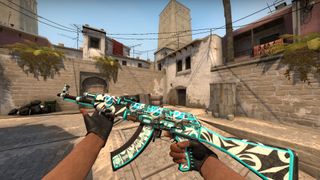
Other than these specific comments, Valve has not censured skin gambling websites or discouraged anyone from using them. In an April report by Bloomberg, a spokesperson for one of the most popular gambling websites, CSGO Lounge, said that Valve has communicated with them and provided technical support.
The controversy surrounding skin gambling took a new, upsetting turn last weekend when it was revealed that two high-profile YouTubers had created and then marketed a CS:GO gambling website to their audiences on YouTube and social media without disclosing their co-ownership. Their videos showed them winning thousands of dollars worth of CS:GO skins on CSGO Lotto, portraying their success as luck.
Why is CS:GO unique?
Secondary markets have sprung up around many games that contain tradable items since the early days of eBay, and developers have grappled with these resellers in different ways. But CS:GO’s situation is unprecedented: the near total focus of these third-party groups on turning CS:GO gun skins into tokens that can be used to play casino-like games—and the fact that these outfits are unregulated and do not impose checks against the participant’s age—may be in violation of US law. By not publicly intervening, Valve has allowed gambling to become an inseparable aspect of CS:GO’s culture.
Four things allowed for the foundation and explosive growth of these third-party gambling websites:
- The popularity of CS:GO, which boasts more than 10 million unique players (about as many copies as Overwatch has sold on all platforms) and an esports viewership that rivals Dota 2.
- CS:GO’s item drop system which awards weapon skins and weapon cases at a controlled interval to anyone who plays. Cases contain contain gun and knife skins, but they must be opened with keys, which can be purchased on Steam for $2.49 or acquired via trade.
- The Steam Community Market, a digital marketplace for 33 games, as well as Steam Community items (such as trading cards), where in-game items are sold and bought with real money from your Steam Wallet.
- The Steam Trading API, which allows anyone to create third-party tools to manage item transactions on a large scale.
How does skin gambling work?
There’s more than one way to gamble a skin. A multiplicity of CS:GO gambling websites exist, and most offer a unique gimmick or mechanism by which you bet and win items. Betcsgo.org lists more than 55 websites that offer some form of CS:GO skin gambling. A few examples are below.
The biggest gaming news, reviews and hardware deals
Keep up to date with the most important stories and the best deals, as picked by the PC Gamer team.
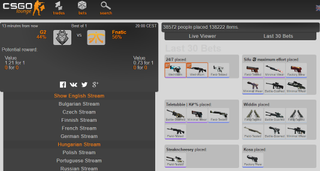
Esports betting
In this nascent industry, CSGO Lounge is one of the oldest and most popular, allowing users to bet CS:GO items from their Steam inventories on CS:GO matches in leagues like the ESL and FACEIT. Users can bet up to $300 worth of items on a single match, although secondary Steam accounts can be used to bet beyond that limit. Winnings are based on odds, which change dynamically based on the ratio of bets between teams. “If odds are 75-25, that would mean three people would have had to bet on the 75 percent and one on the 25 percent,” a CSGO Lounge admin told me in 2014.
Anyone with a Steam account can use CSGO Lounge, and per the website’s rules, it’s your responsibility to figure out if that’s legal where you live: “By placing a bet on CSGO Lounge you are confirming that you are in abidance with your country's laws which allow you to participate in skin-betting,” the rules section of the website reads. “This is generally 18 years of age or older, but make sure to check.” If you don’t claim your winnings within 21 days, CSGO Lounge keeps them.
Like nearly all other skin gambling websites, CSGO Lounge uses Steam bot accounts they’ve created to receive bets and distribute winnings. Users receive an invitation to trade items from a Steam account controlled by CSGO Lounge’s automated system, which offers their winnings as a one-sided trade.
Mystery boxes
CS:GO itself presents players with tiny slot machines: weapon cases that you can pay $2.49 to unlock while you’re within the game client. Websites like skincrates.com replicate the excitement of opening these weapon cases but do so using their own, proprietary tokens and cases. It’s a facsimile of the experience you have in-game, but with different outcomes and a different group taking your money. SkinCrates repackages individual CS:GO skins that they own into custom ‘crates’ (not official CS:GO weapon cases) that you can pay to open on their website. $3 worth of SkinCrates credits, for example, allows you to open an ‘AWP Crate,’ and you can take a chance at one of 24 different knives (of varying value and rarity) with $60 worth of credits.
Like other CS:GO gambling outfits, Skincrates dresses itself in the art and aesthetic of CS:GO, using recolored images of cases and special forces characters to make its services feel more official. CSGOfast.com is another egregious example of this technique, where on its ‘Top players’ (i.e., gamblers) page it awards rank badges taken from CS:GO’s competitive matchmaking to the users who have won the most value.
Public pots
This popular form of skin betting is arguably the most direct, as it’s purely odds-based gambling with other players. On skinjoker.com, players deposit skins into a shared pot as a short time limit counts down, after which no more bets are accepted. The system picks a winner based on everyone’s entries: the higher total value of the skins you bet, the greater your chance of winning the pot.

Gambling games
Another sub-category of gambling websites allow you convert your items into a proprietary currency for use in web-based versions of traditional games like poker, rock-paper-scissors, dice, or roulette. On csgolive.com, you can play blackjack using ‘chips’ converted from the value of your deposited skins. A link labeled ‘Provably Fair’ on the website currently leads to nowhere.
How many people are gambling?
Conservatively, tens of thousands of people are gambling using CS:GO skins. Alexa.com gives csgolounge.com a global rank of 574, a measurement of its average daily visitors and pageviews over the last three months (for comparison, hulu.com ranks 294). In March 2016, 38 million people visited the site. CSGO Lounge’s Steam group has more than half a million members. In an ESL One match earlier today between Fnatic and FaZe, 43,840 accounts bet 171,093 items.
Csgofast.com tracks daily unique players on its front page, which today shows 17,500 players. Csgobig.com tells you how many dollars’ worth of CS:GO skins have been won that day; when I visited around dinnertime, it showed more than $1 million.
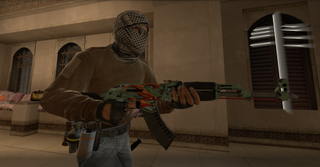
How does Valve benefit?
Skin gambling indirectly stimulates the Steam Market. Valve makes 5% off the sale of any Steam Market sale, but they take 15% of the sale of items from Valve games like CS:GO, Dota 2, and Team Fortress 2. If an AWP Asiimov sells for $30 on the market, Valve would take $4.50—item seller would receive $25.50. If the owner of that AWP gets bored of it, or the price rises significantly, they can re-list it on the Steam Market and Valve would again take 15% of the sale. In this way Valve benefits from the volume of transactions and the selling price of the items listed.
Is this legal?
There isn’t a lot of legal precedent on virtual item gambling. Are skins money, virtual capital, or are they more like arcade tokens that these gambling websites accept like pinball machines? One of the few, somewhat comparable recent cases is Mason v. Machine Zone, in which a plaintiff alleged that the ‘Casino’ area of Game of War, where players could bet in-game currency in order to receive rewards, constituted a gambling device, and that the $100 she lost was a result of “unfair competition.”
The court didn’t rule in Mason’s favor, going so far as to call comparing the value of in-game virtual gold and in-game rewards to the value of real money “a whimsical undertaking” that “has no place in federal court.” Because Game of War doesn’t offer payouts of real-world money, Mason had transformed her money into valueless play money, the court says. “[The] Plaintiff was not wagering with dollars,” the decision reads, “she was playing with virtual gold. Plaintiff acquired that ‘gold’ in the “gold store,’ where she exchanged her real-world currency for a nontransferable, revocable license to use virtual currency for entertainment purposes. At the moment of that antecedent transaction, Plaintiff’s ‘loss,’ if any, was complete: then and there she had swapped something of value (real money) for something of whimsy (pretend ‘gold’).”
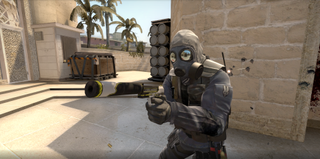
There are major differences between Game of War and CS:GO, especially the presence of an open digital market operated by Valve that provides pricing information on weapon skins in real money. But one small similarity is that secondary markets do exist for selling Game of War accounts for real-world money, a fact that the court didn’t seem to give much weight.
“What she could not do is cash out of the game. In this respect, while GoW’s Casino function aesthetically resembles classic games of chance, the underlying transaction is more akin to purchasing cinema or amusement park tickets. Consumers of such services pay for the pleasure of entertainment per se, not for the prospect of economic gain,” the decision read.
Some of the only legal insight on the topic came in an AMA on /r/GlobalOffensive this week, where three lawyers who specialize in gaming, gambling, or esports offered their perspectives on the issues connected to CS:GO skin gambling.
"For my money," Bryce Blum says of the likelihood that skin gambling will be considered gambling by the law, "I think this is a no brainer because the secondary market is prominent, permitted to exist, and skins have widely known value. That being said, there isn't a case directly on point here so it's impossible to say for certain."

“[T]he question is whether the skins are a “thing of value,” adds Jeff Ifrah. “Generally, in traditional gambling cases, this means cash or chips. Skins, even with secondary markets, hold their value because of the gaming, which puts it squarely in the virtual world,” he continued, “If the skins are virtual things of value, using them for gambling would be OK under most laws.”
Overall, their legal attitude is that betting doesn’t necessarily need to banned in all forms, but that it needs more regulation and protections for participants. “CSGO has grown to its current prominence in large part due to betting, and I don't think eliminating all skin betting is necessary or a smart move,” writes Blum. “We do however desperately need to eliminate the bad actors from the space. The types of fraud that came to the fore in the CSGO Lotto and CSGO Diamond situations are precisely what arises when betting sites operate without oversight or transparency. The entire industry needs to take a stand on this issue, not just Valve.”
CS:GO skin gambling operations are not in imminent legal danger, and there are no known suits against them at time of publication. Sports betting is illegal everywhere within the United States with the exception of Nevada, Oregon, Delaware, and Montana. Internet-based gambling is prohibited in all but three US states, even if you’re older than 18. Unless Valve makes a public statement condemning the activities of these groups, or restricts use of its Steam Market API to groups that it vets, gambling will continue to be a morally and legally gray by-product of one of the world’s most popular PC games that’s accessible to anyone with a Steam account.
We’ll continue to cover this topic and update this article as new information emerges.

Evan's a hardcore FPS enthusiast who joined PC Gamer in 2008. After an era spent publishing reviews, news, and cover features, he now oversees editorial operations for PC Gamer worldwide, including setting policy, training, and editing stories written by the wider team. His most-played FPSes are CS:GO, Team Fortress 2, Team Fortress Classic, Rainbow Six Siege, and Arma 2. His first multiplayer FPS was Quake 2, played on serial LAN in his uncle's basement, the ideal conditions for instilling a lifelong fondness for fragging. Evan also leads production of the PC Gaming Show, the annual E3 showcase event dedicated to PC gaming.
